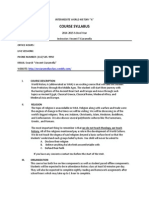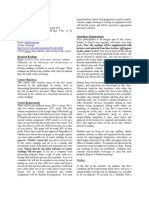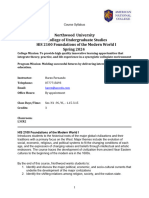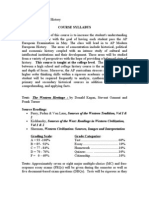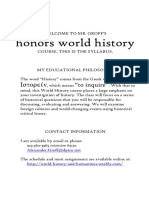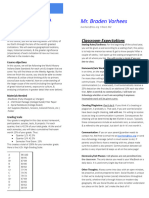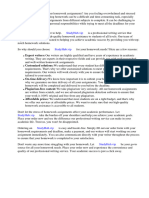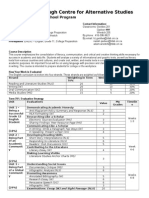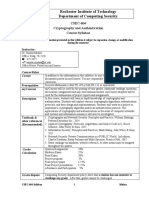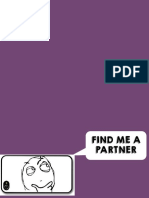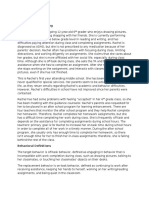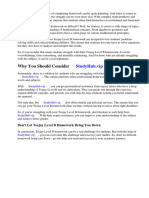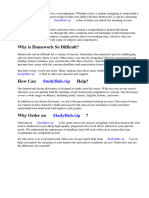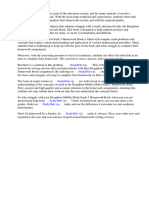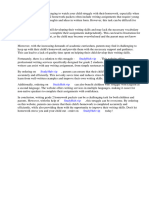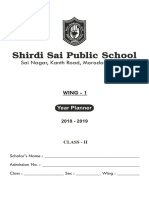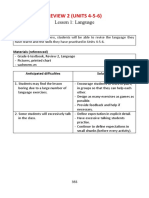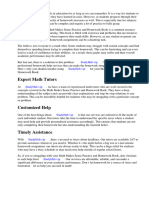0% found this document useful (0 votes)
32 views8 pagesSyllabus 2020 Spring
The syllabus outlines a World History course from Ancient Times to 1500, focusing on the political, social, religious, cultural, and economic history through primary and secondary sources. Grading is based on quizzes, exams, assignments, participation, and a final exam, with strict policies on attendance, make-up exams, and academic integrity. The course includes a detailed schedule of readings and class discussions covering various civilizations and historical developments.
Uploaded by
danydicelisCopyright
© © All Rights Reserved
We take content rights seriously. If you suspect this is your content, claim it here.
Available Formats
Download as PDF, TXT or read online on Scribd
0% found this document useful (0 votes)
32 views8 pagesSyllabus 2020 Spring
The syllabus outlines a World History course from Ancient Times to 1500, focusing on the political, social, religious, cultural, and economic history through primary and secondary sources. Grading is based on quizzes, exams, assignments, participation, and a final exam, with strict policies on attendance, make-up exams, and academic integrity. The course includes a detailed schedule of readings and class discussions covering various civilizations and historical developments.
Uploaded by
danydicelisCopyright
© © All Rights Reserved
We take content rights seriously. If you suspect this is your content, claim it here.
Available Formats
Download as PDF, TXT or read online on Scribd
/ 8



